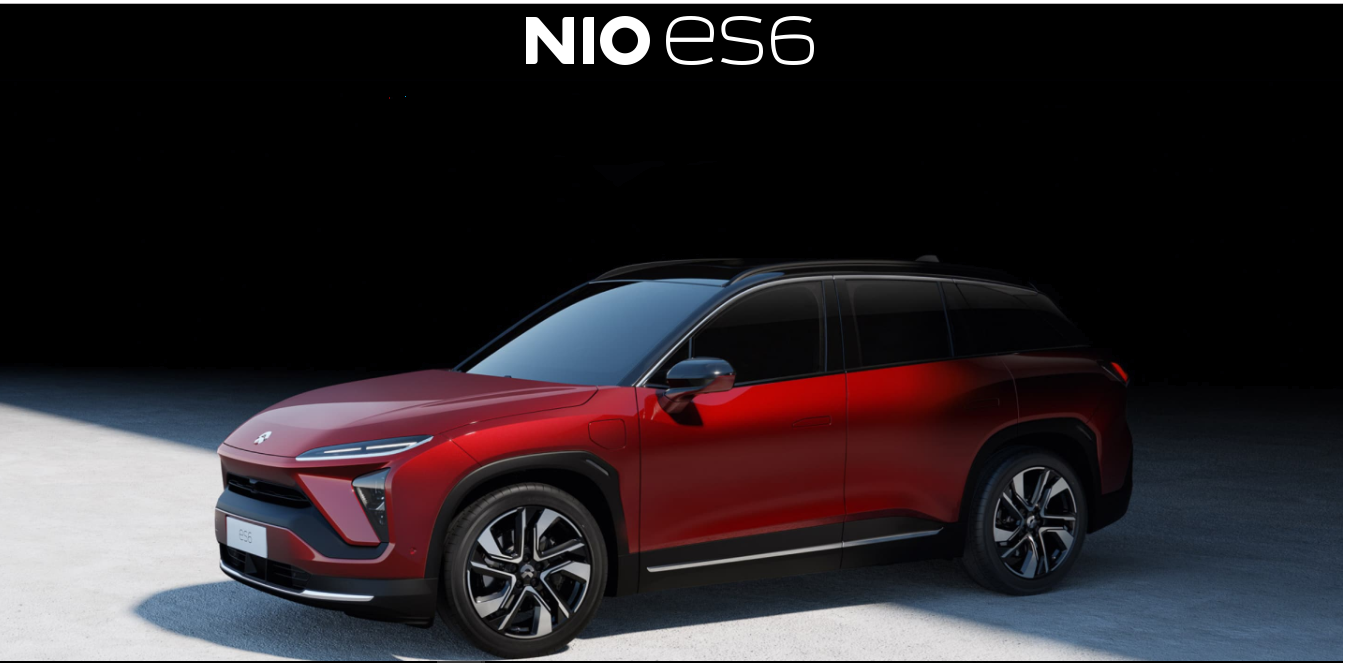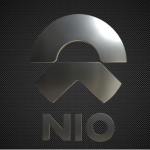New hack challenge from Eramet for the TC Hackathon at VivaTech
There’s no question that springtime in Paris is the stuff of legend. TechCrunch is returning to the City of Lights to continue building another legendary experience. The TechCrunch Hackathon at VivaTech 2019 takes place at the Expo Porte de Versailles on 17-18 May. If you’re a developer, a UX/UI designer or an all-around tech creator, don’t miss this chance to collaborate, compete and create something great.
Thanks to stellar sponsored hack contests, you can win serious cash and other awesome prizes in the process. There’s no fee to enter, but get your free hackathon ticket now, because they won’t last long.
Thousands of startup founders, business leaders, investors, academics, students and media across Europe and beyond will descend on VivaTech, which makes it the perfect place to host a hackathon of epic proportion.
Here’s how it all works:
Form or join a team and take on a specific hack challenge put forth by the hack sponsors. Fuel up on whatever gets you through the night, because you have just 24 hours to work your tech magic, wield your mighty coding skills and produce a working solution.
It’s pencils down after 24 hours, and then your sleep-deprived team will have just 60 seconds to deliver a rapid-fire presentation to our hackathon judges. Each team receives a score between one and five, and the team with the highest score wins the prize associated with the sponsored hack. In addition, TechCrunch will award a €5,000 grand prize for the best overall hack.
All teams that receive a combined score of three or higher also win tickets to TechCrunch Disrupt Berlin 2019 and VivaTech 2020.
We’re stoked to announce the details of the latest hack contest from our sponsor, Eramet:
In the 21st century, metal alloys are everywhere, e.g. computers, electric cars, satellites. You can find up to 20 different alloys in a single computer. The quality requirements of customers are extremely tight nowadays. Eramet, a global mining and metallurgical group, challenges you to find a solution that can provide our customers with 100 percent transparency on our supply chains, from the extraction of ore from the mine to the final product, with a heavy focus on the quality, environmental, social and ethical aspects. The winner of this challenge will receive a €5,000 prize.
In case you missed it, we already announced a contest from EDHEC. The company’s offering a €5,000 prize to the team that creates the best product to help students make sure they choose the course of studies and career that’s right for them.
Be sure to keep checking back, because we’ll announce plenty more sponsored contests — with awesome prizes — in the coming weeks.
The TechCrunch Hackathon at VivaTech 2019 takes place on May 17-18. Are you ready to put your skills to the ultimate test and become a legend in your own right? Get your free ticket and join us in Paris. We can’t wait to see what you create!
Le Wagon launches part-time coding bootcamps
Le Wagon has been steadily growing for the past few years. The bootstrapped French company now has 34 campuses across 22 countries. And now, Le Wagon is about to welcome a whole lot more students thanks to a new part-time program.
The startup has been testing a new part-time format in London and now wants to expand this program across all campuses. This way, students can keep working in their existing company and attend Le Wagon on Tuesday night, Thursday night and Saturday.
Le Wagon still focuses on its highly rated full-stack program. So far, nearly 5,000 students have attended this 9-week full-time bootcamp. You get to learn about front-end and back-end development, and you end up building your own project from start to finish.
After a couple of months, you should be ready to start a startup or join a startup as a software engineer. And Le Wagon is still scaling that program as the company expects to accept between 2,000 and 3,000 students in 2019 alone.
The part-time program has the exact same content and costs the same price — the full-time program in Paris currently costs €6,900. The part-time program is going live in Paris in August, and it should be live on most campuses by January 2020. And the company thinks a part-time program opens up many different possibilities.
If you have a family and kids, maybe you can’t afford to leave your job or take a sabbatical. Some high-ranked executives also want to be 100 percent sure they want to start a new career before leaving everything behind. According to Le Wagon co-founder and COO Romain Paillard, the new program should attract different profiles, which should improve the quality of the alumni community.
Many former students create their own startups. French startups founded by Le Wagon alumni have raised $48 million (€43 million) in total.
Of course, it’ll take a lot of motivation to go through the program. It’s like signing up for a part-time job in addition to your full-time job. Le Wagon will screen candidates as much as possible to see if they’re motivated enough to finish the program.
Many companies don’t want to let their employees attend Le Wagon right now because it means they’ll be gone for a couple of months. Le Wagon thinks companies will be more open-minded about a part-time program and support their employees.
This will be a nice addition to Le Wagon’s executive program. The company is just starting on this front and has attracted hundreds of employees working for big companies and looking for a short program to learn new skills.

Beyond Meat files for a public offering
Beyond Meat, the meat replacement company whose packages of Beyond Burgers line grocery store aisles across America, has filed for an initial public offering.
The company is looking to raise roughly $200 million in the stock sale for its portfolio of burger, chicken and sausage replacements, selling 8.75 million shares of common stock at an upper limit of $21 per share that would value Beyond Meat at more than $1 billion.
The Los Angeles-based company’s public offering should be a nice windfall for the Chicago-based investors DNS Capital, an investment firm managing the private wealth of the Pritzker family, and Cleveland Avenue, founded by former McDonald’s executive Don Thompson; as well as the venture capital firms Kleiner Perkins and Obvious Ventures.
Another winner from the Beyond Meat public offering is the corporate investment arm of Tyson Foods . The meat processor and marketer invested in Beyond Meat back in 2016.
All told, Beyond Meat has raised $122 million from investors, including Obvious Ventures, Kleiner Perkins, Cleveland Avenue, DNS Capital, Tyson Ventures, Bill Gates, S2G Ventures and a whole host of other firms, according to Crunchbase.
While Beyond Meat has increased its revenues steadily — from $16.2 million when it began selling its wares in 2016 to $87.9 million in 2018 — the company is still a loss-generating machine. Its operations were in the red to the tune of $29.9 million in 2018, down from $30.4 million a year earlier.
With the public offering, Beyond Meat becomes the first venture-backed meat replacement company to list its shares, but there are other startups waiting to follow suit. Impossible Burger is another well-financed startup making burger alternatives, as is the current king of animal-free condiments, Just, which is looking at lab-grown meat on its product roadmap.
Supporting all of this investment activity is the potential to carve out a huge chunk of the $270 billion consumers spent on meat in the U.S. in 2017 alone. Globally, consumers bought $1.4 trillion of meat, according to data from Fitch Solutions Macro Research cited by the company.
Audioburst raises $10M to build AI-powered infotainment systems for cars, ad solutions
Audioburst, a startup that uses AI technology to extract the best bits from podcasts and talk radio to create new listening experiences, has raised an additional $10 million in strategic funding from Dentsu and Hyundai Motor Company. The new round is focused on helping Audioburst further expand into advertising and in vehicles. It also precedes the company’s planned launch into Japan at the end of 2019.
Dentsu and Hyundai join Audioburst’s other strategic investors, Samsung Ventures, Nippon Broadcasting, and Advanced Media, Inc., and bring the company’s total raise to date to $25 million.
The startup today ingests and indexes millions of audio segments per day, then uses AI technology — including Automatic Speech Recognition and Natural Language Understanding — to create products like a searchable library of audio, personalized audio feeds and news briefs, notifications and more.
Through an API, partners can integrate Audioburst’s personalized feeds into their own smart speakers, mobile, in-car infotainment systems and other products.
The investment from the international ad agency Dentsu, headquartered in Tokyo, will see the company working with Audioburst to create a market for personalized audio in Japan. Brands will leverage the technology to target listeners with more personalized ads based on an improved understanding of customers’ interests.
“Personalized advertising in the radio space has been limited to-date. In addition, the emergence of voice-activated services and audio content have provided a rapidly growing advertising opportunity for our clients,” noted Hideki Ishibashi, managing director of Dentsu Innovation Initiative, in a statement.
Audioburst is not alone in working to create personalized listening experiences as a channel for advertising — Spotify, for example, is doing this with music. And this year, it even opened up its flagship product, the personalized Discover Weekly playlist, to brand sponsorships. Pandora also lets advertisers personalize their messages by leveraging listener data. And as podcasts have become a new priority for streaming services like this, ad personalization will follow as listeners stream more non-music audio.
Meanwhile, Audioburst will work with Hyundai — which contributed half ($5 million) of the $10 million investment — to develop a new in-car infotainment system that includes a personalized audio search experience and playlists that customers can access via voice commands.
“At Hyundai, our mission is to have our cars connected by 2020 and provide our customers with the best possible in-car experience,” said Dr. Yun-seong Hwang, vice president of Hyundai Motor Company. “Partnering and investing in Audioburst ensures we will lead the charge in a data-driven first class audio experience.”
Hyundai’s investment follows a December 2018 Audioburst partnership with LGE, which focused on building new infotainment systems for automakers. That deal was the first to use Audioburst’s Deep Analysis API, which adds an additional level of metadata categorization in order provide a more in-depth understanding of the content users searched for. The Hyundai deal will now leverage this API, as well.
Audioburst also has strategic partnerships with Bytedance, Bose, Harman and more.
Sri Lanka blocks social media sites after deadly explosions
The government of Sri Lanka has temporarily blocked access to several social media services following deadly explosions that ripped through the country, killing at least 207 people and injuring hundreds more.
Eight bombings were reported, including during Easter services at three churches, on the holiest weekend of the Christian calendar.
In a brief statement, the Sri Lankan president’s secretary Udaya Seneviratne said the government has “decided to temporarily block social media sites including Facebook and Instagram,” in an effort to curb “false news reports.” The government said the services will be restored once the investigations into the attacks had concluded.
Sri Lanka’s prime minister Ranil Wickremesinghe has described the explosions as a terrorist incident.
Nalaka Gunawardene, a science writer and Sri Lankan native, confirmed in a tweet that Facebook-owned WhatsApp was also blocked in the country. Others reported that YouTube was inaccessible. But some said they were able to still use WhatsApp .
Facebook spokesperson Ruchika Budhraja told TechCrunch: ““Our hearts go out to the victims, their families and the community affected by this horrendous act. Teams from across Facebook have been working to support first responders and law enforcement as well as to identify and remove content which violates our standards. We are aware of the government’s statement regarding the temporary blocking of social media platforms. People rely on our services to communicate with their loved ones and we are committed to maintaining our services and helping the community and the country during this tragic time.”
A spokesperson for Google did not immediately comment.
It’s a rare but not unprecedented step for a government to block access to widely used sites and services. Although Sri Lanka’s move is ostensibly aimed at preventing the spread of false news, it’s likely to have an inhibiting effect on freedom of speech and efforts to communicate with loved ones.
Sri Lanka, like other emerging nations, has previously battled with misinformation. The government has complained that false news shared on Facebook has helped spread hatred and violence against the country’s Muslim minority. Other countries like India say encrypted messaging app WhatsApp has contributed to the spread of misinformation, prompting the social media company to add limits to how many groups a message can be sent to.
Iran and Turkey have also blocked access to social media sites in recent years amid protests and political unrest.
Updated with comment from Facebook.
Week-in-Review: is Samsung unfolding another flop?
Stop me if you’ve heard this one before. Samsung tries to deliver a big innovation and fails miserably.
A big story this week on TechCrunch was that in the buildup to the release of the Samsung Galaxy Fold, potentially one of the weirdest, most innovative, most expensive phones shipped in the past decade, there are some signs that this could be a momentous failure. Samsung only sent out about a dozen review units to press outlets, and three of them seemed to fail for three distinct reasons.
Does this inspire much faith in the durability of the $1,980 hardware (which has already sold out in pre-orders)? Not quite.
“A limited number of early Galaxy Fold samples were provided to media for review. We have received a few reports regarding the main display on the samples provided. We will thoroughly inspect these units in person to determine the cause of the matter,” a Samsung spokesperson publicly detailed, responding to the issues.

This nascent scandal may lead you to recall the Note 7 debacle, which earned Samsung what was perhaps the worst free advertising ever, with the FAA mandating just about every domestic flight begin with the pilot ensuring that the plane was Note 7-free. A phone spontaneously dying is a cake walk compared to a phablet bomb, but we’ll see whether this was just a big pre-release fluke and the consumer units prove more durable. That said, a failure rate of around 25 percent for models sent to journalists after a few days doesn’t inspire the greatest confidence.
Brian seemed to have some pretty nice things to say about his early time with the device —
Unfolding the Samsung Galaxy Fold:
Hands-on with the $2,000 foldable
I will say I did get a chance to fumble around with the Fold this week while our hardware editor Brian Heater was in town, and I personally found the device pretty inspiring. The screen on his still-functioning device is really quite beautiful and it all just feels like an innovative approach, even if it’s very first-gen at its heart.
Its good qualities all rely on the device continuing to function though, so I won’t get too complimentary until we get some further clarity on that.

Trends of the week
Here are a few big news items from big companies, with links to all the sweet, sweet added context.
- Apple +
IntelQualcomm = best friends
The two companies finally put aside their royalties and patent troll skirmishes, and various media reports suggest Apple’s mobile mea culpa was all about accepting Qualcomm’s command on 5G modems — something the iPhone giant really couldn’t afford to overlook. It was great news for Qualcomm, which had a major stock rally this week, but probably bad news for Intel, which seemed to be embracing a renewed and improved relationship with Apple as it tried to replace Qualcomm’s tech. Oh well. - TikTok’s shock block
Chinese company ByteDance’s cross-border hit TikTok hit a major stumbling block in India after a judge there ruled that app downloads had to be halted on iOS and Android following a number of issues regarding porn and other “illegal content.” There are 120 million existing TikTok users in India, but they shouldn’t be affected, as the service itself has not been banned — you just won’t find them in the app stores there. - Move slow, still break things
Twitter’s CEO Jack Dorsey continued his ill-advised public speaking tour with a chat at TED, where he first said he isn’t sure he’d build Twitter the same way if he got a second shot. “If I had to start the service again, I would not emphasize the follower count as much … I don’t think I would create ‘likes’ in the first place.” In response to a question about his lack of urgency in fixing some of Twitter’s more egregious problems, Dorsey said, “We are working as quickly as we can, but quickness will not get the job done… It’s focus, it’s prioritization, it’s understanding the fundamentals of the network.” - Sony teases an 8K PS5… Xbox loses a slot
While Google is betting on a world without dedicated high-end gaming hardware with its Stadia game-streaming platform, Xbox is betting on a future without physical media. Microsoft released the Xbox One S “All-Digital Edition” this week for $249. The company has been piping out mid-generation upgrades for Xbox One, and this is its most minor hardware update — there are almost no differences beyond the disc drive. Meanwhile, PlayStation kind of stole Xbox’s press lunch by giving some details on the PS5. Also on the gaming front, a report suggests Apple is spending more than $500 million on its Arcade gaming subscription service.

Image: Bryce Durbin / TechCrunch
GAFA Gaffes
How did the top tech companies screw-up this week? This clearly needs its own section, in order of awfulness:
- Facebook elaborates more on that “screwing over users’ privacy” thing it does from time to time:
[Facebook now says its password leak affected ‘millions’ of Instagram users] - YouTube managed to add its own conspiracy to videos of the Notre-Dame fire:
[YouTube’s algorithm added 9/11 facts to a live stream of the Notre-Dame Cathedral fire]

No one knows how to hire, plus brand design and African tech
Editor’s Note: No one knows how to hire
Hiring is the lifeblood of the world. Few people do truly singular work; instead, nearly every facet of our civilization is built by groups of humans (and increasingly machines) working in tandem.

Image by PeopleImages via Getty Images
That presents quite the puzzle though: if teamwork is so critical to the functioning of, well, everything, why are we so god awfully bad at building teams?
Minus a couple of high functioning teams of course, the evidence for team rot is all around us. Startups go bust when teams of two (i.e. founders) can’t make simple decisions about the future of their business. Large companies exsanguinate cash while their teams spend eons debating the minutia of a pixel in the checkout flow. At even larger scale, massive infrastructure projects like California’s HSR fail because the right people weren’t planning and building it (plus ten other issues of course).
How do we get this so wrong, so consistently?
The first reason, and the one most challenging to overcome, is that human endeavors are fundamentally built upon aspirations. A startup is a dream, no different than improving Excel’s formula editor or adding traffic signals to an intersection. Action cannot happen without aspiration, and so we tend to be far more optimistic with all facets of a plan before execution.
Original Content podcast: On ‘Guava Island,’ Donald Glover mixes music and politics
It was hard to know what to expect from “Guava Island.”
Last year, Donald Glover and Rihanna filmed the mysterious project with director Hiro Murai (who’s also directed multiple episodes of “Atlanta” and the music video for “This is America”, then they said almost nothing about it until debuting the film at Coachella and releasing it on Amazon.
“Guava Island” turns out to be a 54-minute, fable-like story of a musician named Deni (Glover) and his girlfriend Kofi (Rihanna) on a fictional Caribbean island. Deni plans to throw a music festival for the community, but the island boss Red Cargo wants to stop him — if his employees stay out late to party, they might not show up for work the next day.
On this week’s episode of the Original Content podcast, we’re joined by Jon Shieber to discuss our reactions to the film.
It’s certainly filled with beautiful footage of Cuba, as well as wonderful musical moments — like a restaging of “This is America” that makes its anti-capitalist themes even more obvious. But the story as a whole feels underdeveloped, and it’s a bit mystifying that someone would cast Rihanna in musical, then fail to give her a single moment to sing.
We also discuss an obscure little show called “Game of Thrones,” which returned for its final season last week. We have thoughts on the season premiere, and on what’s coming for the next five episodes.
You can listen in the player below, subscribe using Apple Podcasts or find us in your podcast player of choice. If you like the show, please let us know by leaving a review on Apple. You can also send us feedback directly. (Or suggest shows and movies for us to review!)
Nio – The Tesla of China
Nio is an electric car company based in Shanghai China. It is a pioneer in China’s premium electric vehicle market, has been named #5 in Fast Company’s prestigious annual list of the Most Innovative Companies in China for 2019. The company (Nio) was established in 2014. NIO Inc made its name by developing the “EP9” supercar. The two-seater ran the Nürburgring Nordschleife in just 6 minutes 45.9 seconds, setting a record for electric vehicles (EVs) on that track.
The company then entered the premium electric vehicle market in China with the “ES8,” an all-electric, full-size SUV that can seat seven passengers. NIO plans to launch the “ES6,” its five-seater SUV, by the end of this year.
NIO’s most notable 2018 innovative achievements include:
- March 1, 2018: NIO Issued First Shanghai Intelligent Connected Vehicle Test Permit
- April 9, 2018: NIO Wins the 2018 Red Dot Design Award’s Top Accolade
- April 26, 2018: NIO Issued Beijing Intelligent Connected Vehicle Test Permit
- June 28, 2018: NIO ES8 deliveries began in China
- July 17, 2018: NIO EP9 sets “Fastest electric production car” record at Goodwood’s Festival of Speed with a lap time of 44.32 seconds
- September 12, 2018: NIO Inc. announces New York Stock Exchange initial public offering
- September 24, 2018: NIO ES8 sets Guinness World Record for “Highest altitude achieved in an electric car” at the height of 5,715.28 meters
- October 20, 2018: 12 NIO Houses available throughout 10 cities in China
- November 15, 2018: 18 battery swap service stations available along the G4 Expressway in China
- December 15, 2018: NIO ES6 5-seater SUV product launch at NIO Day 2018

Why it could be a success
Analysts offering 12-month price forecasts for the stock price of Nio Inc have a median target of $56.23 from the last price of $8.17.
SoftBank and Toyota want driverless cars to change the world
Softbank and Toyota are partnering on an effort to use autonomous vehicles and other technologies to change the world of transportation.



Socially!